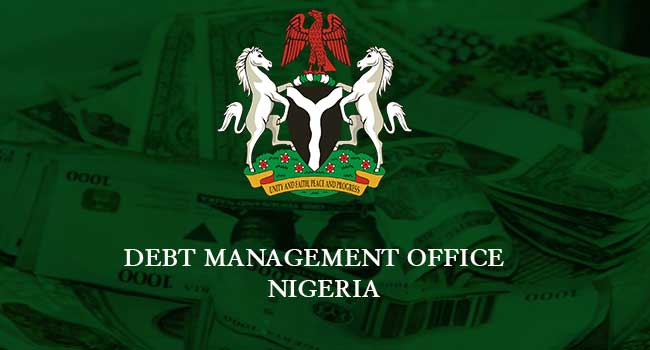The IMF concluded its review of Nigeria’s economic policies, in line with its Article IV Consultations, by 30th July 2017, and warned that although Nigeria’s economy might just grow marginally this year, the threat to full recovery still remained elevated, while the economy is also unlikely to grow sufficiently, to reduce unemployment and poverty. The IMF consequently advised the government to increase its sources of revenue apart from crude oil, and reduce further debt accretion in view of the already bloated and oppressive service charges.
These measures, according to IMF, should be simultaneously accompanied by a monetary policy that “avoids CBN’s direct financing of government, outside the fiscal plan. Furthermore, monetary policy should be kept sufficiently tight, with a unified and market-based exchange rate with rapid implementation of structural reforms.”
Nevertheless, despite these IMF prescriptions, unemployment and poverty will still clearly deepen, if tight monetary policies drive cost of funds, well above 20 percent, while excess liquidity remains a perennial burden fueling inflation.
The above title and the following excerpts are from the Guardian Newspaper’s expanded editorial of 31st July 2017. Please read on.
“This newspaper hereby reaffirms its position, earlier canvassed in its editorial of 18/7/2017 titled “Economy: Lend To Rather Than Borrow From IMF”, that the economy has the stamina to dispense with external budgetary support and to still out-perform the ERGP (Economic Recovery & Growth Plan), if (and only if) the four decades-long business-as-usual economic sabotage through implementation of inappropriate fiscal and monetary measures, does stop. That editorial, also indicated sources of revenue being diverted elsewhere to the neglect of delivering essential services. Notably, however, Nigeria has a mixed enterprise economic system; consequently, Government does not require gigantic budgets to create the conducive environment that facilitates participation by the much larger, private sector, in delivering basic projects and essential services.”
“Nonetheless, it is pertinent that Finance Minister, Kemi Adeosun, should explain why government’s “small-sized budgets” omit the gargantuan proceeds that accrue from the difference between the FAAC (budget) exchange rate and the depreciated exchange rate, from auctions of withheld Federation Account dollar allocations. The following questions, therefore, need urgent answers, (1) Are all such proceeds looted? (2) Is such wholesale looting the reason for the perpetuation of dollar auctions? (3) Does the Federal Ministry of Finance not breach the annual Appropriation Act when it devalues the Naira and thereby bleeds the economy? The auctions sabotage the national currency and prevent efficient working of the economy. This baneful practice should therefore stop.
However, at an Executive Business forum, in Abuja in July 2017, the Finance Minister, soft-pedaled the need “to plug all the stealing and all the waste” but blamed tax evasion for the low tax/GDP ratio, which was in turn, responsible for increasing public debt, small size national budgets and government’s incapacity to deliver basic projects.
Indeed, for the purpose of comparison between two countries, tax/GDP ratios need to be adjusted, mainly because the level of tax takings depends on earned incomes and individual country tax policies. There are economically prosperous tax havens and oil-rich countries that impose very little or no tax at all on citizens. Moreover, tax holiday and low tax level are part of package of incentives for luring and retaining investors to promote economic prosperity. In advanced countries, one strategy for combating economic recession is to reduce and refund taxes to enable businesses to produce and for consumers to go on a spending spree. Thus, while tax evasion should not be condoned, the FGN is sabotaging full blast economic recovery by embarking on intense tax collection drive, at a time, Nigeria’s economy is in recession or when exit from recession may be imminent.
However, a useful indicator for gauging economic prosperity is the volume of bank credit as a proportion of GDP. This indicator points to the intensity of economic activity, that is, in turn dependent on the tripodal factors of low interest rate, low inflation and a realistic and stable exchange rate. Does the actual accessed volume of credit matter? Yes! For instance, after several years, Nigeria’s over 17m MSM Enterprises have yet to fully utilise CBN’s N220bn Development Fund, owing to unattractive interest rate of 9 percent, excluding ‘padding’. Such a meagre loan volume would not lift economic activity. And it has no tax value.
Thus, over the years, the greatest form of economic sabotage committed by the Federal Government, which is the exclusive monetary authority and biggest public spender, is the refusal to discard withholding of Federation Account dollar allocations and thereby blocking the road to the tripodal factors. The FGN jettisoned the realisation of CBN’s statutory object of guaranteeing price and monetary stability, which alone would prompt cheap bank credit and extensive private sector investment to raise domestic bank credit/GDP ratio. The Result? In 2014, the full year before crude oil prices began to dive, World Bank data show domestic credit provided by the financial sector, as a proportion of GDP, stood at Nigeria (22), Malaysia (140), Japan (374) and U.S.A. (253).”
“Apart from frustrating the tripodal factors, the deliberate withholding of federation’s dollar allocations, since 1971, has created other abuses that have thoroughly sabotaged and distorted the economy. Real production has ceased to be the goal of profitable business undertaking. The poisoned harvest includes multiple currency practices (with deep-rooted dollarisation as offshoot) and custom-made fragmented forex windows, for palming off the bulk of the withheld FA foreign exchange. Implication? One, there is absence of a single forex market to coalesce a realistic and stable exchange rate centred on the Appropriation Act (AA) exchange rate. The lack of a realistic and stable exchange rate, breeds persistently under-performing economy and idiomatically sabotages and unfortunately shoots the country in the foot.”
“Two, the Buhari administration’s expressed intention to borrow $4bn from the local debt market, evidences the multiple currency practices. Shamefully, it connotes the co-existence of two monetary bodies. One body, governed under the 1999 Constitution, has naira as a National currency. Another body comprising cheaters and haters of Nigeria adopts as its currency, the alien U.S. dollar and wangles its stock of dollars largely from withheld FA dollar allocations against Nigeria’s interest. This unwholesome origin of the domestic dollar debt market makes it an integral part of “all the stealing and all the waste” which the Finance Minister conveniently (or is it collusively?) downplayed at the recent Abuja business forum. Thus, in place of real production that boosts overall economic prosperity, the manifest avenues of making easy money have become multiple rate currency practices, dollarisation and domestic dollar debt market. These are unproductive practices that sabotage the economy, they should be stamped out.”
“Ordinarily, the country’s public and private sector forex earnings should flow directly to fund eligible imports, while surplus forex is kept as Federal Government-owned external reserves by CBN. But in Nigeria’s upside-down forex arrangement, the external reserves are confiscated by CBN. They are called CBN’s external reserves. The CBN acquires its external reserves, through printing by fiat, purported naira equivalent figures that catch the apex bank’s fancy.”
“The presence of two monetary entities technically means Government unwittingly shares Nigeria’s sovereign responsibilities and independence with imposters. Therefore, the NASS should urgently draw the attention of the President to the unconstitutional development, which has thoroughly undermined national economic advancement.”
“In conclusion, the numerous policies and measures, acts and practices of economic sabotage by the Federal Government (a few which are highlighted above) should now cease. The Cabinet and Economic Management Team should therefore, immediately, direct both the FAAC to share FA receipts in the very currencies the amounts accrue and the CBN to operate a Single Forex Market system, in the manner repeatedly outlined by this newspaper.”
Save the Naira, Save Nigeria!!!


